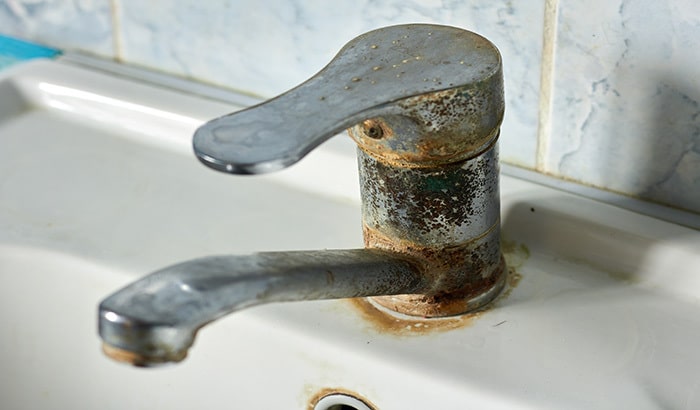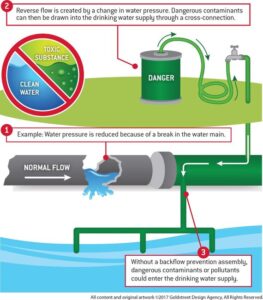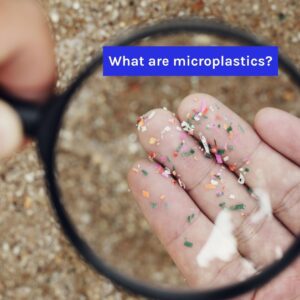
Effects of Hard Water
As rain water filters through the earth, it picks up minerals such as Calcium, Iron, Copper, Magnesium, Silica and Lead. Hard water has effects — some more noticeable than others — that you should know about. Being able to identify the signs and effects of hard water will help you know if you need to do something about your home’s water situation.

Here are some common effects of hard water:
- Stains: Hard water can cause stains to appear in tubs and sinks. This is due to water drying in these basins, leaving behind rings and blotches from deposited minerals.
- Higher water bills: Your appliances may end up working harder as a result of mineral deposits from the hard water, which could lead to higher water bills. When your appliances have to work harder to maintain the desired output, their chances of needing more frequent maintenance and repairs increase. This could lead to some unexpected expenses.
- Ruined clothing and linens: The minerals in hard water may ruin your linens and clothes as you wash them over time. Eventually, the colors could become dull and the textures can take on a rougher feeling. You may need to buy replacements sooner than if you had soft water.
- Scaling: Scaling is a phenomenon where water leaves behind excess calcium minerals on the surfaces it comes in contact with. It takes on the form of a white, chalky residue. If your home has hard water, you may encounter scaling on your faucets, handles and even on your dishes after washing them.
- Fewer suds and foam when lathering soap: You’ll really feel the effects of hard water when you’re bathing, washing your hands or washing the dishes. You’ll notice fewer suds and less lathering ability from soap products and shampoos when you mix them with water and scrub.
- Soap scum: When you wash your hands with hard water, you may feel a slight film on your hands afterward. This is from the soap scum left behind. Soap scum is a reaction between the calcium minerals in hard water and soap. You may have to rinse your hands a bit longer when using hard water to get rid of this film.
- Flat hair and dry skin: You may experience dry skin and flat hair as a result of bathing with hard water. Since hard water does a poor job of lathering soap and rinsing it away, it’s going to stay on you. This can cause your skin to dry out and your hair to feel heavier, drier and flatter.
- Low water pressure: Buildings with hard water may provide low water pressure because of clogged pipes. As hard water travels through pipes, it’ll leave behind mineral buildup. Over time, this buildup can get so bad that it clogs the pipes, leading to lackluster water pressure from faucets and shower heads.
Possible Health Risks of Hard Water
A health factor to consider is the dry skin and hair that bathing with hard water can cause. You may feel itchy or uncomfortable after bathing. You may have to use moisturizers or specialty products to prevent your skin and hair from drying out. These effects can be especially burdensome on people who already deal with dry skin, so you should be aware of the type of water you have if this is something you can relate to.
Hard water can also affect your skin’s pH level. This could weaken the skin’s natural barrier, which resists infections and harmful bacteria. For people with skin conditions including eczema, this can be a serious factor against using hard water. Be sure to talk to your doctor about measures you could take to limit negative health outcomes from hard water like this.

Well water and hard water can be especially damaging on the hair. Ask anyone with well water and they will tell you, especially if they do not have a water softener. And even then, well water can wreak havoc with your hair. Symptoms of hair maladies due to hard water or well water can include dry or damaged hair; hair that is resistant to coloring, highlighting, perming or relaxing or straightening; hair that lacks body and shine; hair that is thinning or breaking; hair where the color fades too quickly; highlights that turn ruddy or discolored; and perms that fall out.
Calcium, Iron, Copper, Magnesium, Silica and Lead can cause different reactions in hair. For example, if water has an abundance of iron in it, hair will be discolored, turning an orange or rust color. Copper with give blond highlights a green tint. Magnesium causes hair to appear weighted down and lack volume. And calcium can prevent the proper processing of color, highlights, perms or relaxer/straighteners.
Hard Water Treatment
A whopping 85% of Americans live in an area with hard water. You may choose to treat the hard water in your home to make it softer. You can do this with a water softening system. These systems run hard water through a sticky, insoluble resin that has a coating of positively charged sodium ions. Positive sodium ions have an electric charge, which causes them to replace calcium and magnesium in the hard water. The result is soft water coursing through your home’s water appliances.
Water softening systems need consistent maintenance to stay functional. The resin can attract fungi and bacteria, so you may consider hiring a professional to conduct regular inspections and cleanings. You’ll also need to add sodium pellets to the system to give the resin the positive electric charge it needs to remove the unwanted minerals from the water. Some systems use potassium pellets, which may be ideal if you or anyone in your family needs to watch their sodium intake. However, the amount of sodium added to a water softening system is dependent upon the hardness of the water being softened. The following table can be used to determine how much sodium your water softener is adding to your water supply.

The U.S. Environmental Protection Agency estimates that the average person drinks two quarts of water a day. Therefore, if you were to drink water that contained 150 milligrams of sodium per quart, your total daily intake of sodium from your drinking water supply would be 300 milligrams. This amount may seem high, but when compared to the daily intake of sodium, which in the average adult is between 3000-6000 milligrams, it is easy to see that your drinking water contributes just a small percentage.
EcoWater wants to improve the health of your family’s water. From cleaning away contaminants with a water filtration system to replenishing your skin with a water softener system, EcoWater has the solution to enhance the taste and quality of your home’s water. These solutions include products with NSF certification 42 (chlorine taste, odor), 44 (efficiency rated and reduction in barium, radium, and hardness) and NSF/ANSI/CAN 372 (low lead content). Operational and quality certifications are an industry best.
Solving Your Water Problems
Whether your water comes from a private well or a municipal water supply, one thing is clear, the water in every home is unique. Older pipes, a water main break, and even the distance your water travels before it reaches your home can introduce additional contaminants into the water you consume. A water test is necessary to learn if your home’s water has any issues that need treatment. EcoWater has designed and engineered a broad spectrum of state-of-the-art filters considered to be the best on the market to deal with households with water contamination issues.
Source: https://www.ecowater.com/






